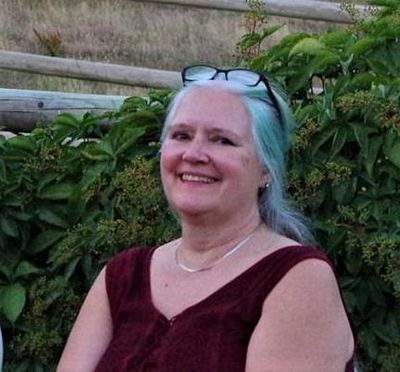This column reflects the opinion of the writer. Learn about the differences between a news story and an opinion column.
Faith and Values: Pandemic drives home need for stronger local economy

Recently I signed up for a Community Supported Agriculture (CSA) share with LINC Foods, a Spokane-based farming cooperative. Last week, I was part of a Spokane Independent Metro Business Alliance (SIMBA) virtual gathering and realized the time to get serious about building our local economy is now.
I have been preaching this for the last decade. But until now, I have allowed my capacity for actually building it to be limited by my commitment to other projects. Well, no more! This pandemic has brought home for me a commitment I made after Wall Street created an economic crash in 2008 – a commitment to work to create local economies that support healthy communities instead of multinational corporations.
This commitment grows out of my faith – John Wesley style. Discipleship requires care for creation, love for all one’s neighbors, and working for just economic systems.
Our United Methodist Book of Discipline (our guidebook for living faithfully) calls us to be caretakers of God’s creation: “All creation is the Lord’s, and we are responsible for the ways in which we use and abuse it. Water, air, soil, minerals, energy resources, plants, animal life and space are to be valued and conserved because they are God’s creation and not solely because they are useful to human beings.”
Jesus reminds us that love of neighbors is part of the Great Commandment. And that my “neighbor” is anyone in need (Luke 10:25-37). If I genuinely love those whom God loves, I will work for justice and mercy for all.
Economic justice is core to Jesus’ message. He talks more about money than any other subject. His vision for the Kingdom is one in which we feed, clothe and house people, and practice radical hospitality toward strangers and sojourners (Matthew 25:31-46).
This is just the first step in my renewed commitment to building a healthy local economy, but it will not be my last. I had already refused to order from Amazon (instead supporting local indie bookstores), made locally owned stores my first shopping choice and encouraged new-economy efforts like LINC and SIMBA. This year, the COVID-19 pandemic and the resulting economic crisis (to which Congress has responded by funneling money to Wall Street and multinational corporations) have renewed my commitment to actively work for change.
The time has come for all of us to join the effort to build a healthy local economy. As a first step, I challenge you: Unless you grow your own organic produce, purchase a CSA share today! I chose LINC (Local Inland Northwest Cooperative) because I am deeply committed to their vision of a system of local, worker-owned businesses in our area. But there are other options for joining a CSA.
Urban Eden Farms is hyperlocal – in Vinegar Flats on the southern edge of Spokane. And it has been growing organic produce for decades.
Tolstoy Farms is a worker collective near Davenport that has been providing healthy organic produce to the Spokane area for more than 30 years.
If you want to start small, you can buy a share of Frisson Farms, which is run by veterans and located south of Rosalia. They have CSA pickup points in both Spokane and Cheney.
As we move out of the physical distancing and economic damage done by the virus, we have a profound moral choice. We can participate in rebuilding the economy that privileges those who already have wealth and power. Or we can actively participate in building a new economy that creates healthy local economic structures that practice social and economic justice. You will choose one or the other!
If you don’t consciously choose the new economy, you will de facto participate in rebuilding the previous, unjust one. There is no third option. Your choice matters to your neighbors and your community. And I believe that the health of your soul depends on it.
The Rev. Deb Conklin is pastor of both Liberty Park United Methodist Church and St. Paul’s United Methodist Church.